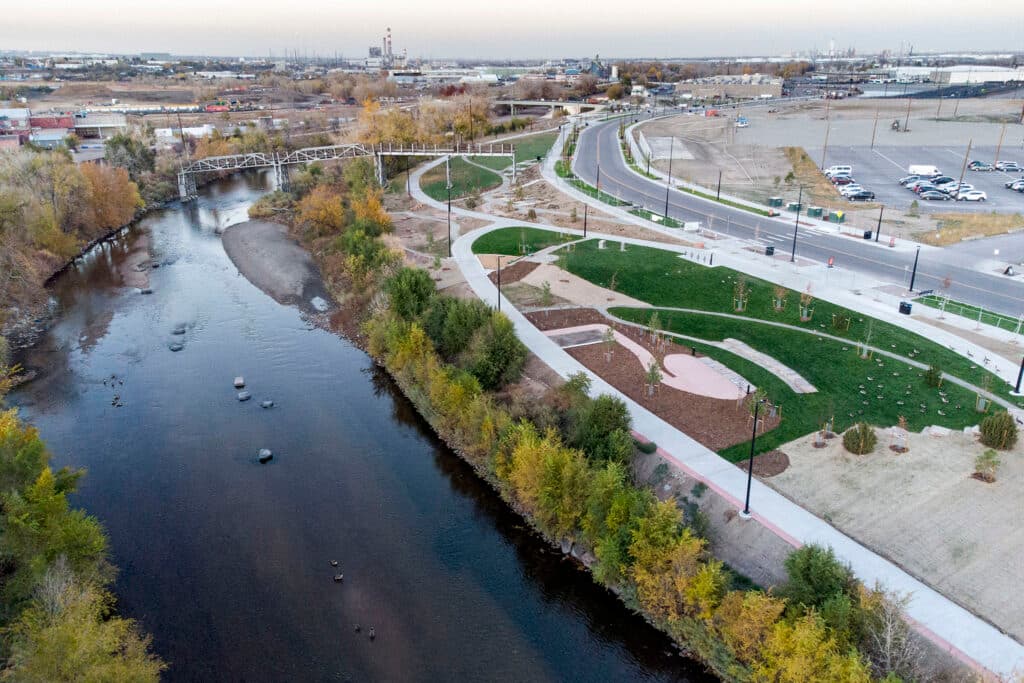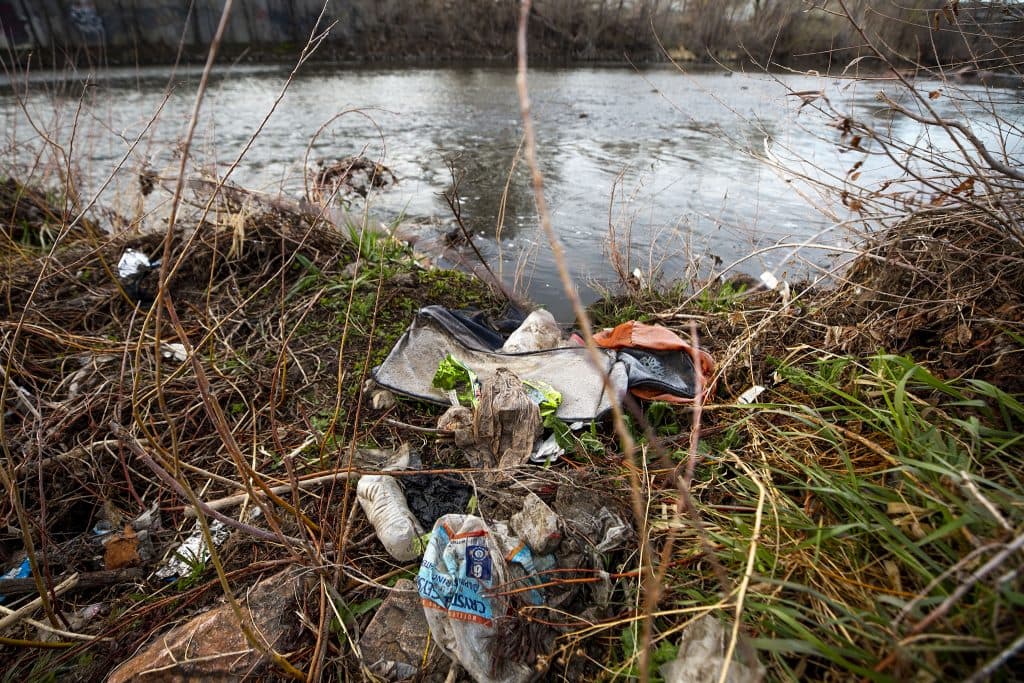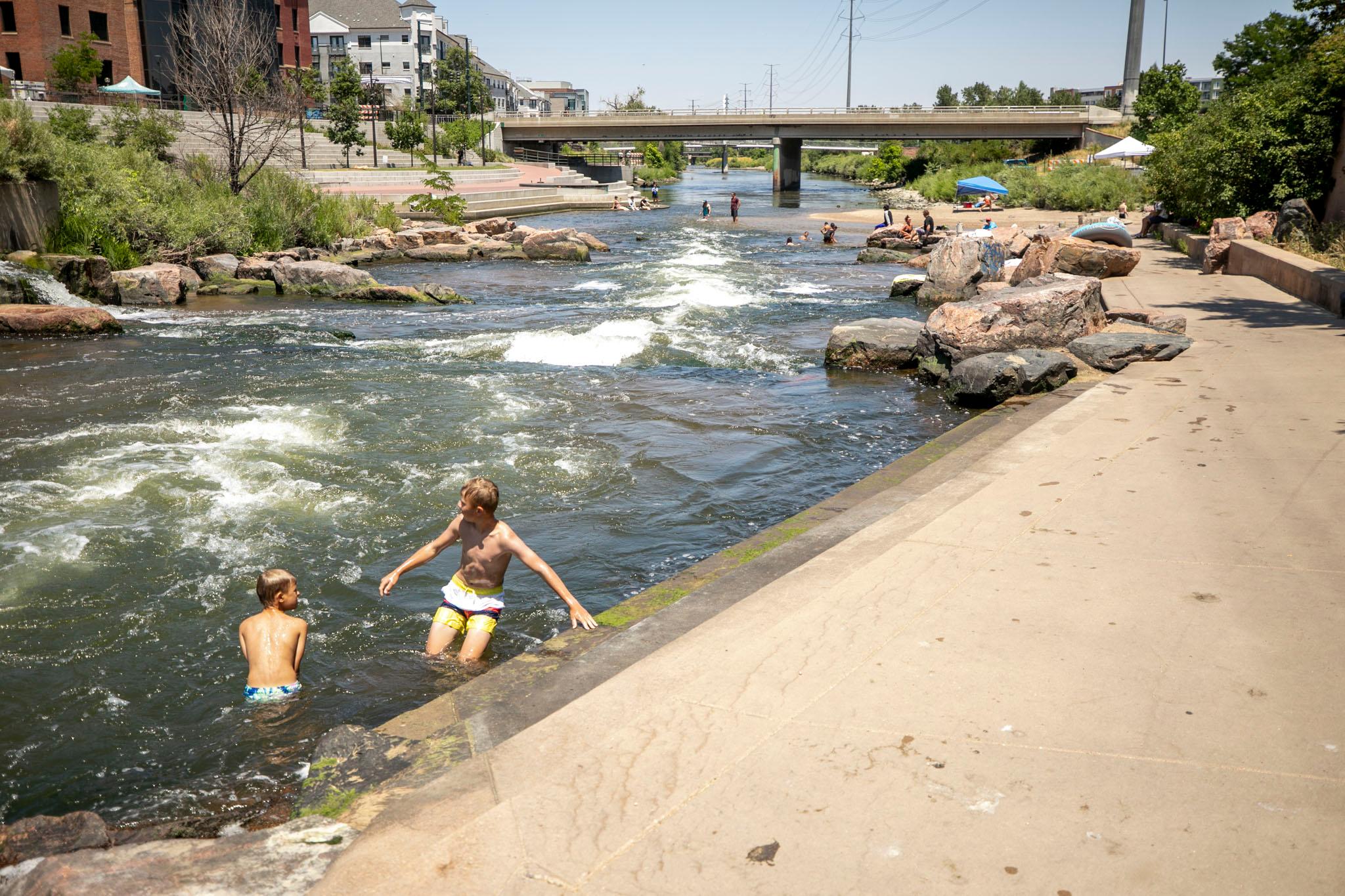What should the South Platte River look like in 10 years? 50 years? 100 years?
That’s a question a new City Council committee plans to tackle in the next few years.
The South Platte River Committee — which met for the first time on Wednesday, July 17 — is where contracts, bills and plans related to the short- and long-term future of the river will go through City Council.
And lots of money will be coming through. Last year, Denver entered into a partnership with the U.S. Army Corps of Engineers, using a mix of federal and city funds to invest $550 million in South Platte River restoration.
Councilmember Jamie Torres, District 3 rep and committee co-chair, said that there is no single entity in the city currently tasked with overseeing planning around the river. That's despite the Platte running through a number of Council districts, including hers.
So, she helped start the committee.
“We all want to love that river again and for it to be part of our lives, as opposed to kind of in our backyard or back door,” she said. “How do we return this river back to the people?”
The South Platte River has a long and storied history before Denver was Denver.
The river was home to the Arapaho and Cheyenne people before European settlers pushed the Indigenous people out as treaties and massacres took place throughout the West.
Early settlers started gold panning along the river in the mid-1800s, shaping much of what downtown and the surrounding neighborhoods look like today.

In 1965 the river was home to one of the biggest natural disasters in the city’s history, when flooding killed 21 people and ruined millions of dollars worth of property.
Years of pollution ultimately made the river unswimmable, and development blocked access across much of the city.
“It was never a place that we went to,” said Torres, who grew up in Denver. “I remember hearing the stories from my mom and my grandma about the flood, and so it was just not a very welcoming waterway, and I think that's such a shame, because if you think multi-generations ago, that was the life system of this city.”
With local and federal investments, plus private development, city leaders and advocates are imagining a new future for the river.
The goals of the federal money include ecological restoration and flood risk reduction.
Nita Gonzales is an organizer with River Sisters and has advocated for waterway restoration in Colorado for years. She says the stakes are high.

“The opportunity for Denver is to become a global leader in climate disaster mitigation and restoration,” Gonzales said. “If we don't do that, then that river gets sicker and gets uglier and the pollution, you're not going to be able to do anything with it. And as a result, the ecosystem that exists will be decimated even further.”
Gonzales has worked to ensure Chicano and Indigenous communities are represented in work around the future of water in Denver and Colorado.
She wants development around the South Platte River to give those groups a seat at the table and tell the river’s Indigenous history.
Denver only has so many more places to develop.
That's why councilmembers say the city needs to think critically about how that will happen.
Some of this work is already underway in the private sphere.
River Mile will be a 15,000-resident development completely moving Elitch Gardens. Development at the National Western Center is already beginning to make portions of the river more accessible.
Council President Amanda Sandoval, co-chairing the committee, wants the South Platte River to become more central to the city.
“When you think of other cities that have rivers, they have a river walk, they have destinations. It's part of the narrative of that of a city,” she said. “It's time that we turn our river into a destination and placemaking and community hub.”
The new committee, open to the public, meets at the City and County Building and on Channel 8 at 1:30 p.m. on Wednesdays.













